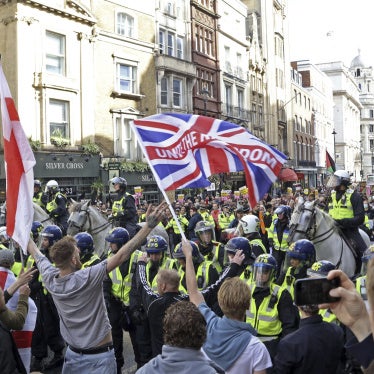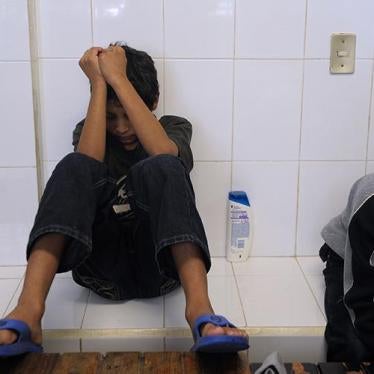(London) The government’s planned ‘Detainee Inquiry’ faces further harsh criticism today as seventeen distinguished international human rights experts publish an open letter to Prime Minister David Cameron stating that “the powers currently given to the Inquiry are seriously deficient and that it will be unable to properly fulfil the UK's human rights obligations.”
The group of experts – which includes UN mandate-holders, two former UN Special Rapporteurs on Torture, leading academics in international law and directors of human rights organisations – has urged the government to remedy key shortcomings in the way the Inquiry will operate to ensure an effective and transparent process in which victims can meaningfully participate.
This letter coincides with an announcement that Abdul Hakim Belhadj, Head of the Tripoli Military Council, is not willing to give evidence to the Inquiry about the UK’s alleged involvement in his rendition to Libya where he faced years of torture in detention. When Mr Belhadj announced last month that he was taking legal action, the UK government responded by stating that the Inquiry would “consider allegations of UK involvement in rendition to Libya as part of its work". Mr Belhadj is the latest in a long list of survivors to refuse to participate in the Inquiry – striking a further blow to its credibility.
The group of human rights experts today argued that fixing serious problems with the Inquiry’s Terms of Reference and Protocol is essential “if the government is to demonstrate it is serious in what it says about restoring moral leadership and preventing the reoccurrence of abuses that continue to stain Britain's reputation.” These flaws include the government reserving for itself the final say on what material is published, rather than an independent mechanism.
In its current form, the Inquiry will allow no opportunity for survivors or their representatives to cross examine or otherwise test evidence from members of the UK security services, almost all of which will be given secretly. The group of human rights experts said: “Those who were subject to torture, rendition or illegal detention and the groups who documented these abuses should surely have the opportunity to challenge the official version of events and those responsible for policy and its implementation.”
Sharp criticism of the Inquiry continues to pile in month on month. In November, the current UN Special Rapporteur on Torture, Juan Méndez, expressed concerns that the Inquiry may have been set up to fail and warned that ‘A less than open and transparent inquiry would only serve to cover up abuses and encourage recurrence’.








